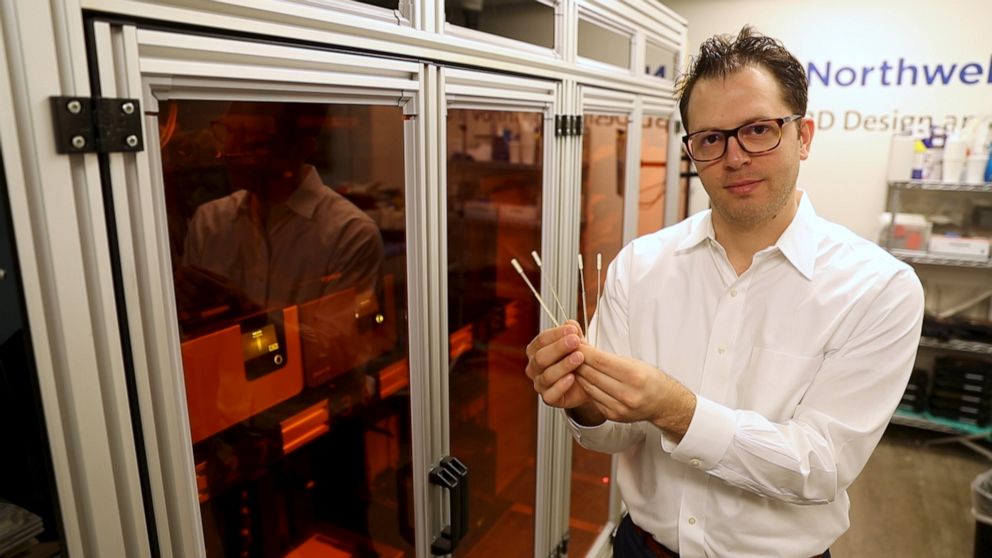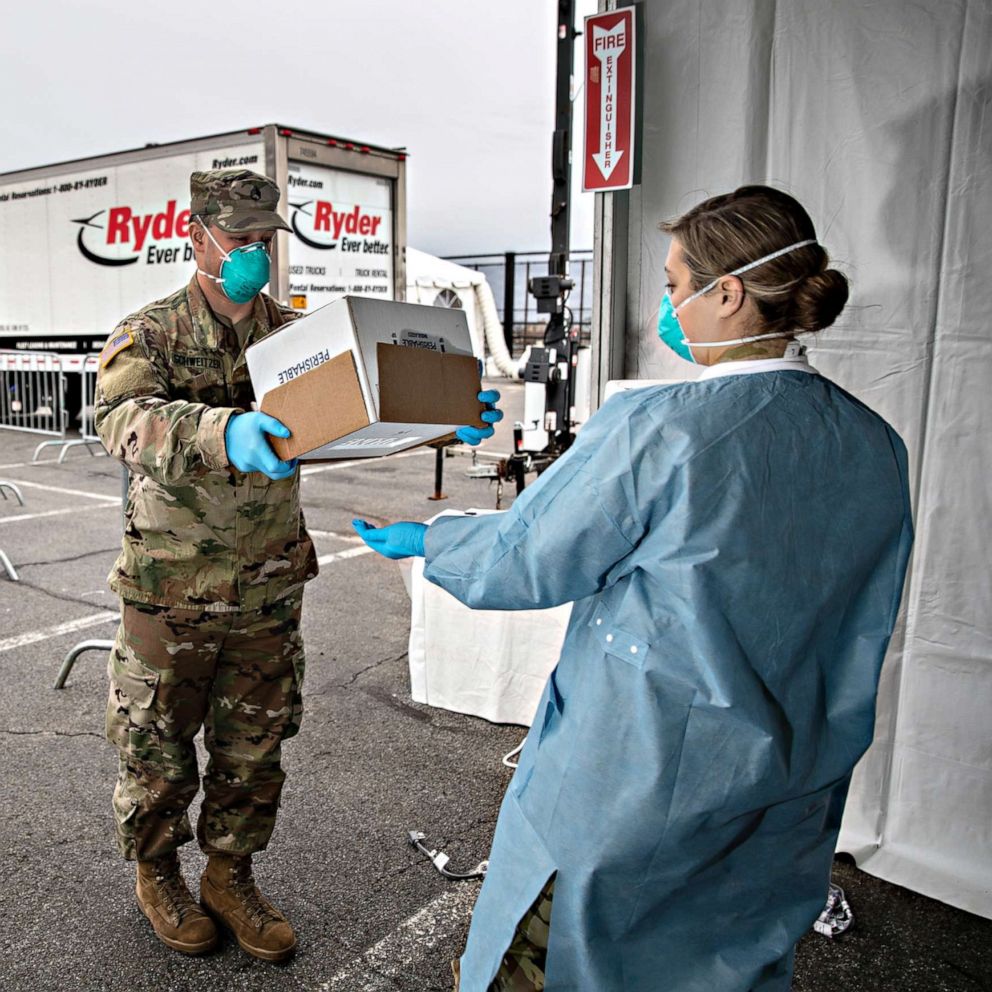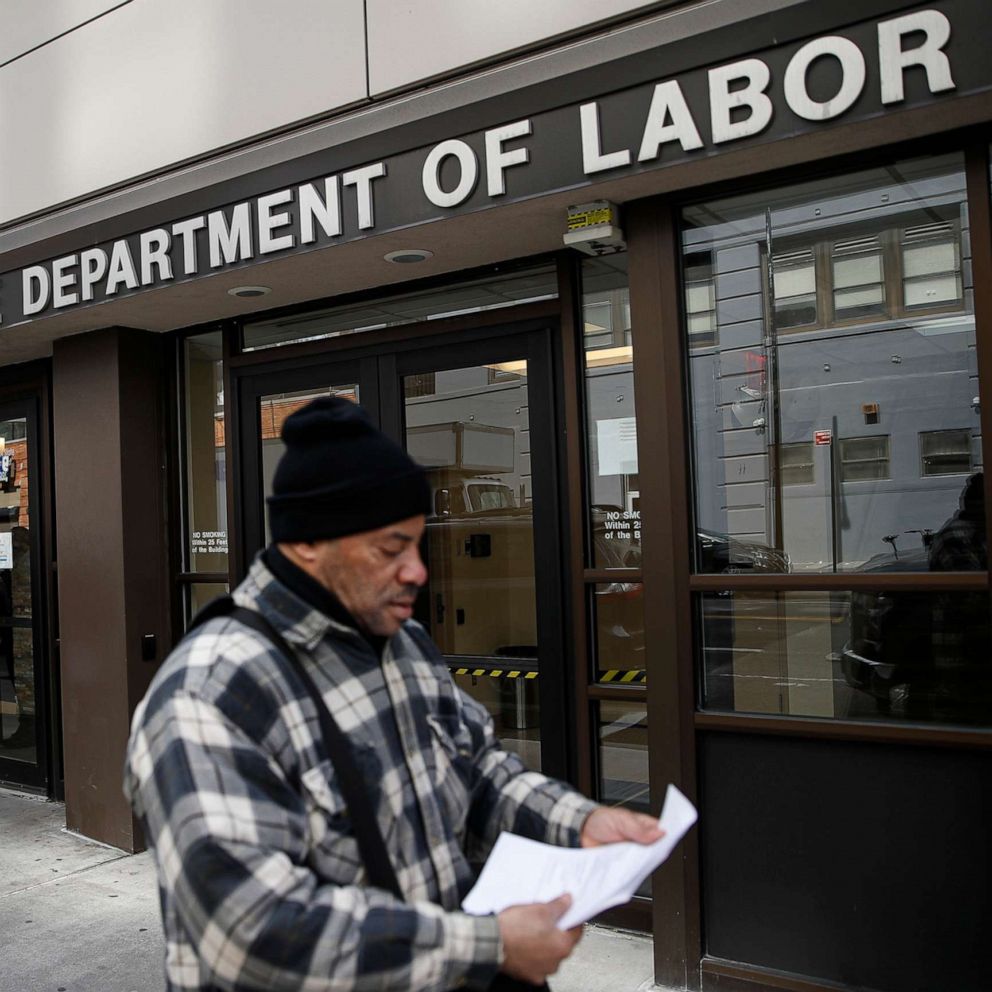New 3D printing techniques could ease medical supply shortages in coronavirus fight
As health care providers across the nation continuing testing for the novel coronavirus, many medical supplies are in high demand and short supply. In particular, there's a dire shortage of nasal swabs used for testing.
A team at Northwell Health in New Hyde Park, New York, might have a solution: a publicly available template for 3D-printed nasal swabs.
"With the COVID-19 virus, our best weapon against it right now is widespread testing," said Dr. Todd Goldstein, director of 3D Design and Innovation at Northwell Health. "This swab is the first line of defense, so to speak, against the coronavirus, because we need to test people and know if they're positive or not. And in order to do that, we have to collect samples."
Northwell Health is now 3D printing around 2,000 to 3,000 nasal swabs a day for immediate use on the front lines of this pandemic. Northwell Health teamed up with the University of South Florida in Tampa and Formlabs in Somerville, Massachusetts, and began 3D printing the novel nasal swabs.
Tune into ABC at 1 p.m. ET and ABC News Live at 4 p.m. ET every weekday for special coverage of the novel coronavirus with the full ABC News team, including the latest news, context and analysis.
By releasing their design to the public, Northwell Health is looking to decentralize production from strained manufacturers.
"Anyone who has these printers and materials -- we're talking dental labs, university hospitals, high schools, middle schools, universities, engineering schools, even companies that use these printers for prototyping ... if they get the correct resin, they can also make these swabs and help with the shortages," said Goldstein.

Nasal swabs can't be made from common materials like cotton or wood, instead, they're typically made from polyester. The 3D-printed nasal swabs are created from plastic, a perfectly acceptable material to use to make nasal swabs that's also ideal for 3D printing.
While the Food and Drug Administration cautioned against the usage of 3D printing for protective medical supplies on March 26, Goldstein clarified that nasal swabs are not considered "protective" equipment, so Northwell is free to continue printing nasal swabs without any regulatory hang-ups.
"It's an interesting situation where we're able to repurpose the materials for this, and there is an abundance of supply" of those materials, said Goldstein. Because many hospitals have stopped elective surgeries, plastic is readily available.
As the health care industry works tirelessly during this pandemic, collaboration is key to support our health care system, said Goldstein.
"We have engineers from all over the spectrum working to help produce these things," he said. "With all of us together, we'll be able to get over this."
Priya Amin is a masters degree candidate in narrative medicine at Columbia University and a member of the ABC News Medical Unit.






